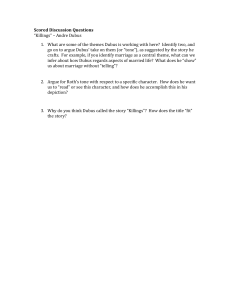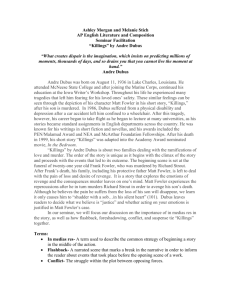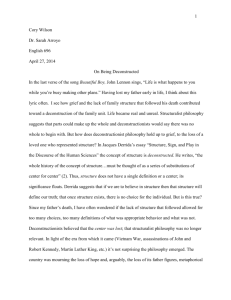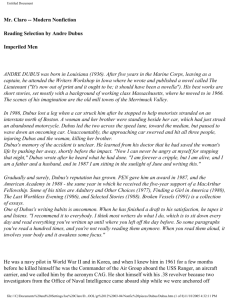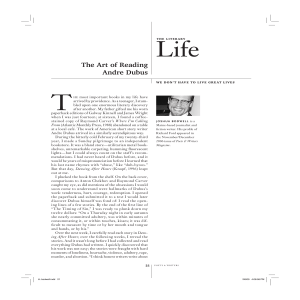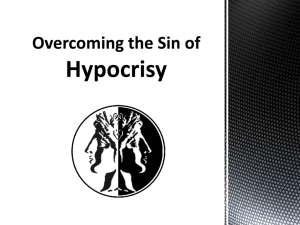Killings by Andre Dubus
advertisement
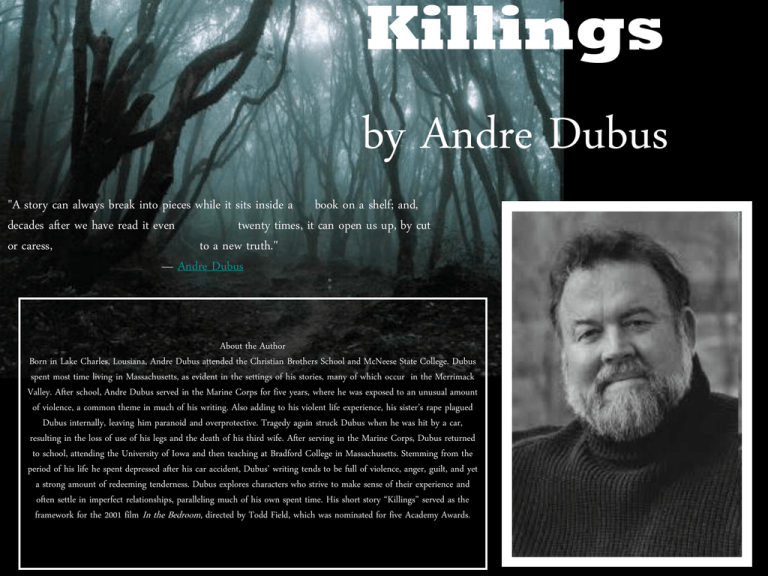
Killings by Andre Dubus "A story can always break into pieces while it sits inside a book on a shelf; and, decades after we have read it even twenty times, it can open us up, by cut or caress, to a new truth." — Andre Dubus About the Author Born in Lake Charles, Lousiana, Andre Dubus attended the Christian Brothers School and McNeese State College. Dubus spent most time living in Massachusetts, as evident in the settings of his stories, many of which occur in the Merrimack Valley. After school, Andre Dubus served in the Marine Corps for five years, where he was exposed to an unusual amount of violence, a common theme in much of his writing. Also adding to his violent life experience, his sister’s rape plagued Dubus internally, leaving him paranoid and overprotective. Tragedy again struck Dubus when he was hit by a car, resulting in the loss of use of his legs and the death of his third wife. After serving in the Marine Corps, Dubus returned to school, attending the University of Iowa and then teaching at Bradford College in Massachusetts. Stemming from the period of his life he spent depressed after his car accident, Dubus’ writing tends to be full of violence, anger, guilt, and yet a strong amount of redeeming tenderness. Dubus explores characters who strive to make sense of their experience and often settle in imperfect relationships, paralleling much of his own spent time. His short story “Killings” served as the framework for the 2001 film In the Bedroom, directed by Todd Field, which was nominated for five Academy Awards. Key Terms Plot: the writer’s selection and arrangement of incidents in a story to shape the action and give particular focus Characterization: the process by which an author reveals and develops a character to a reader so that he/she seems real Suspense: the anxious anticipation of a reader as to the outcome of a narration Tone: the author’s suggested, but not explicitly stated, attitude toward the reader, or characters, places, and events of a story Quotes of Interest “since it had happened [Matt] had not been able to think about any of the small pleasures he believed he had earned, as he had earned also what was shattered now forever: the quietly harried and quietly pleasurable days of fatherhood” (90) “[Matt] wanted with some gesture to give her solace and hope” (93) “[Matt] wished those eyes were oblivious, even cold; he felt he was withering in their tenderness” (94) “[Matt] was conscious of the circles of love he was touching with the hand that held the revolver” (97) “[Matt] shuddered with a sob that he kept silent in his heart” (101) Discussion Questions Please answer three out of the following six questions. 1. Dubus titles his story “Killings” not “Killers” which is interesting considering the strong development of character in his narration. How do these titles differ and what does Dubus’ selected choice suggest about his view of the killers in the story? 2. Explore the final scene in which Matt is telling his wife about the murder. What does this reveal about the emotional impact the killing had on Matt? How does Matt differ before and after the killing? 3. Find evidence from the text to either support or dispute the following statement: Matt’s revenge was well-planned. 4. How does Dubus’ colorful, detailed account of the killing (100) influence the reader? 5. What is the significance of “Stout’s girl” that Matt refers to? 6. With background knowledge of Dubus’ life, what parallels can be drawn between him and his characters in “Killings”?
